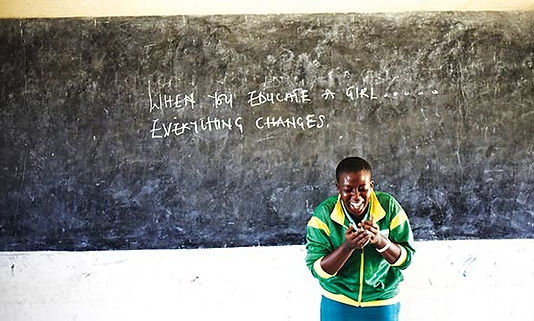A World of Good is a monthly column appearing in Word Vietnam magazing comenting on the state of affairs in the NGO / NPO communities locally and internationally

When NGOs Go Good
I recently wrote—with some glee—about rogue NGOs. Now we’ll look at some good NGOs and reasons to be optimistic about development.
The inescapable changes in the world are all around us. Traditional state-on-state warfare is at its lowest point in modern history. I welcome the academic arguments over soldier-civilian death ratios in conflict, but the point is we live in an overwhelmingly peaceful world. How is this, you ask, when all we see on the news is carnage and mayhem?
Harvard professor (and Canadian) Steven Pinker notes that the number of people who have died due to state war, civil war and terrorism has decreased 50 percent since the 1990s. Further, these death rates have decreased 75 percent if you span the last five decades. The critics naturally disagree, insisting that quantifying lethal deaths (or even agreeing what the perimeters are for 'lethal death') is nigh impossible, but they will admit to some declining numbers, such as 'battlefield fatalities'.
Economists—long a favourite breed in this column—might nod to the Golden Arches Theory of Conflict Prevention, journalist Thomas L. Friedman’s mid-1990s dictum about McDonald’s restaurants and warfare. But this has since been busted with Kosovo, Russia, Georgia and Ukraine. But really, Friedman was just riffing on Immanuel Kant’s 220-year-old essay, "Perpetual Peace", in which the German philosopher wrote:
“The spirit of commerce sooner or later takes hold of every nation, and is incompatible with war.”
The problem is, we’re hard-wired to prefer bad news (it’s a survival thing that our brains are constantly scanning for danger). So we think the world is getting worse and Armageddon is, well, just around the corner. Yes, there are brutal injustices occurring right now in the Middle East (and elsewhere), but this is not global doomsday. It is a distortion the media is happy to oblige with daily howls of havoc.
Development Really Does Work
Putting down our sticks and clubs has enabled us to focus on other things: success in human development. The UN says poverty has been reduced more in the past 50 years than in the last five centuries. The average Chinese person is 10 times richer than she was five decades ago and will live 25 years longer. This is due to rising standards of living, sanitation and medicine.
This is also because technology needs to accelerate and grow exponentially, or fail.
That steep curve shows in the number of university graduates around the world. It has risen fourfold in the last 40 years for men, but has increased sevenfold for women. In Vietnam, Nu Cuoi ('smile') is a nonprofit staffed by volunteer teachers running a night school in Tan Phu District for street children. These kids might not get to university, but they will learn how to read, write and have numeracy. Campaign for Female Education (Camfed) is an award-winning education NGO that trains local teachers with local trainers. Since 1993, over three million children have been supported to stay in school in five countries across sub-Saharan Africa.
Deepening economic (and security) interdependence and cultural ties are just a few reasons for this confidence.
So my earlier glee wasn’t pessimism about NGOs or their (in)ability to contribute to social justice; they do. That previous column was about the perniciousness of aid fraud. Cynicism is a self-fulfilling prophesy and to me has always smacked of defeatism. It’s not terribly clever—or helpful—to bray on about endless dystopia.
Me? I’m with the hamburger crowd.
Photo: Campaign for Female Education / Camfed.org
This article originally appeared in Word Vietnam magazine and has been adapted. To view the magazine’s online version click here.